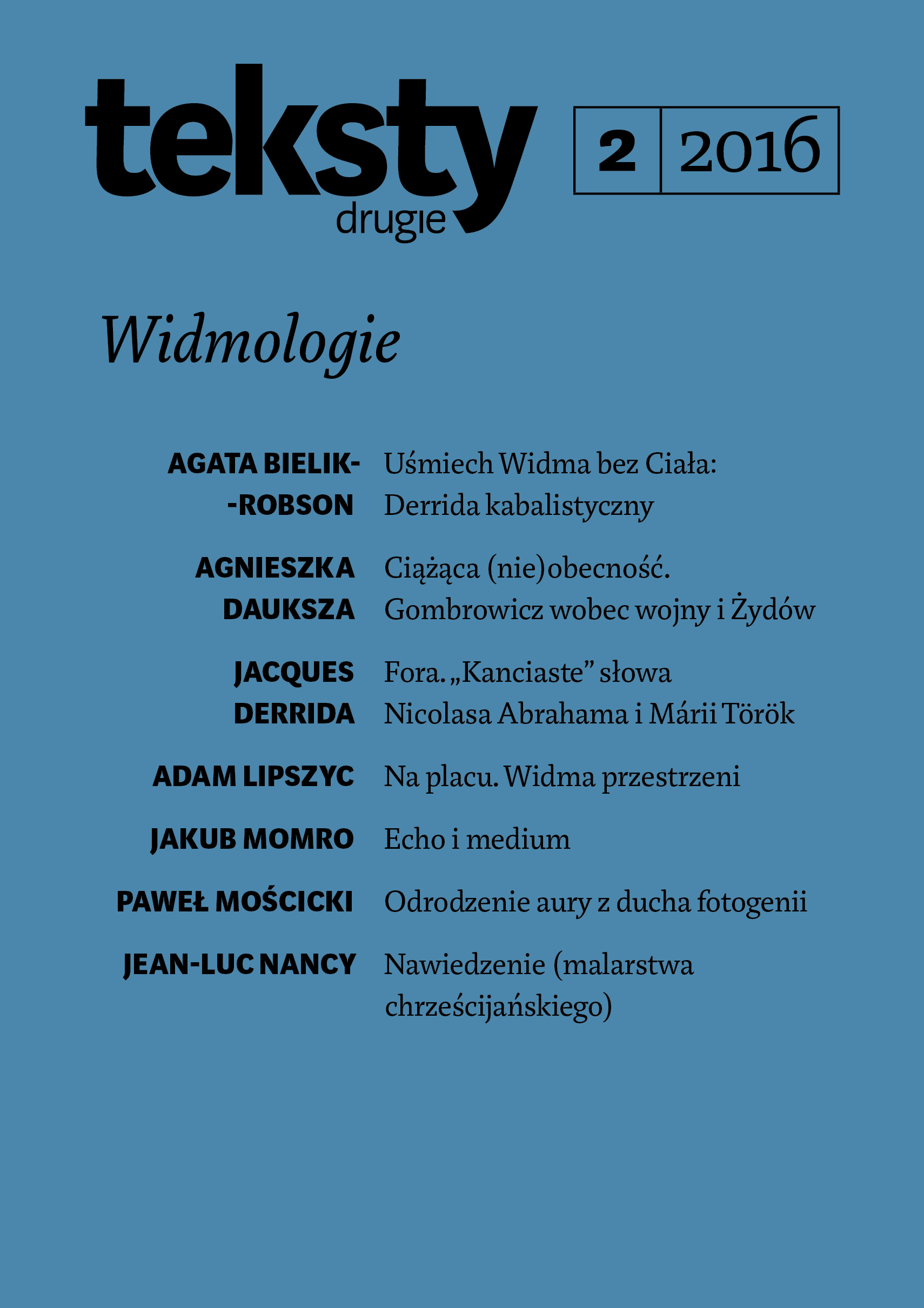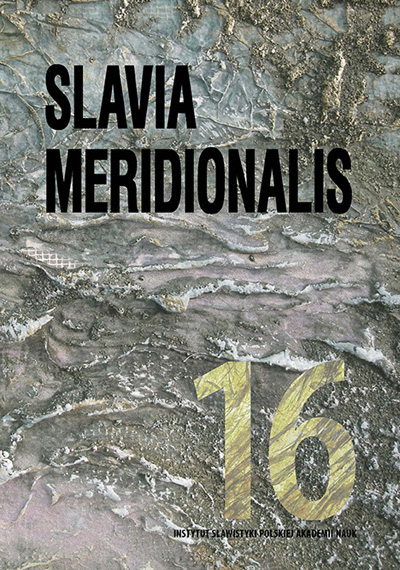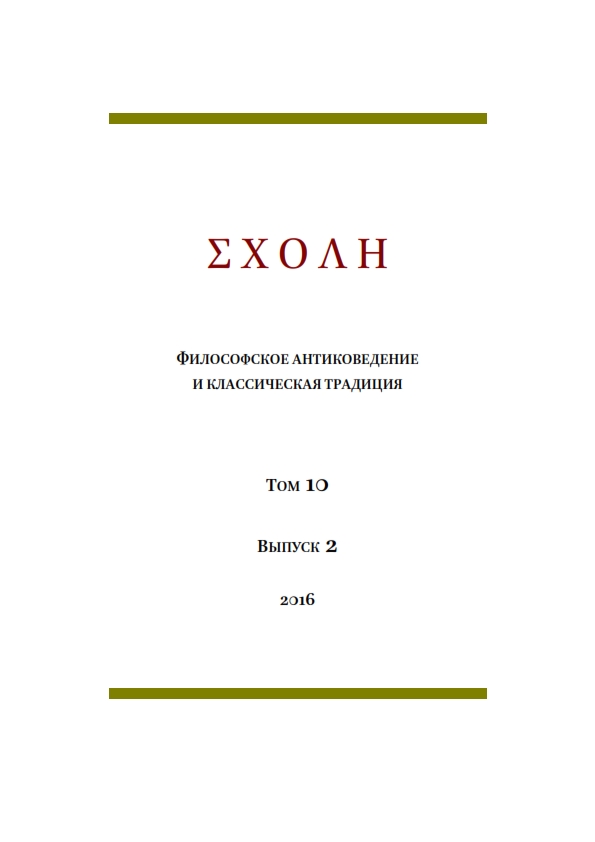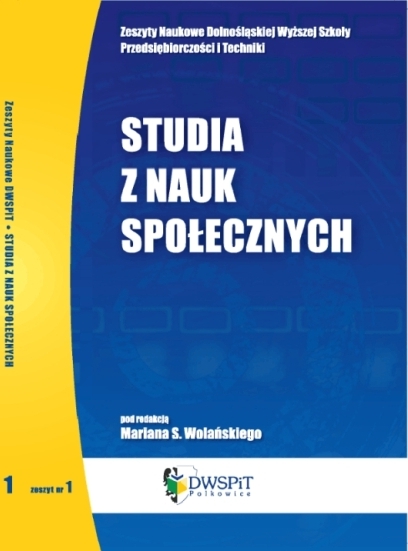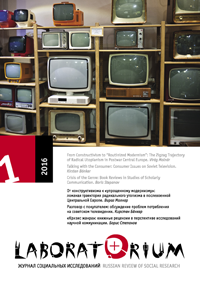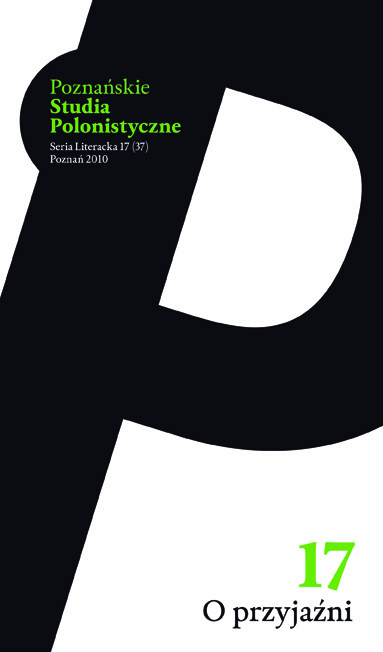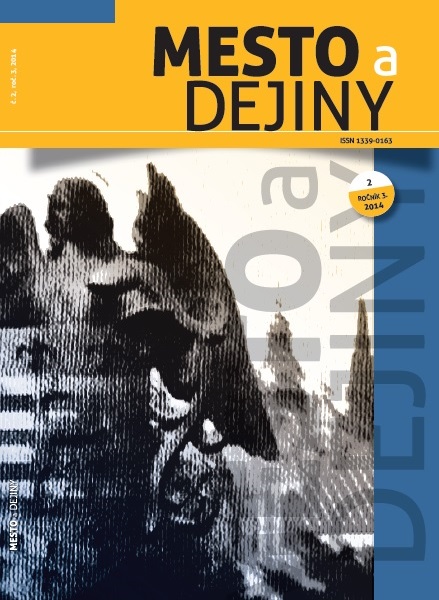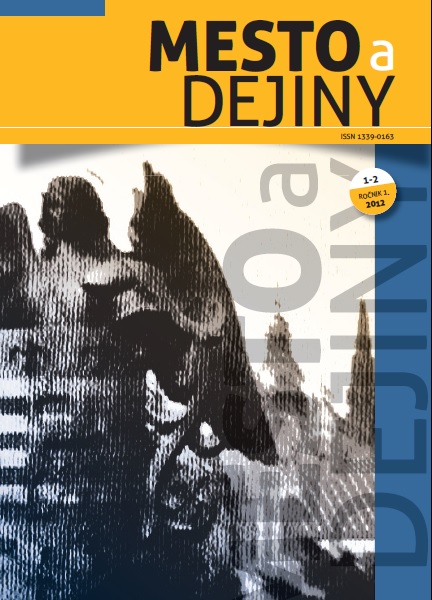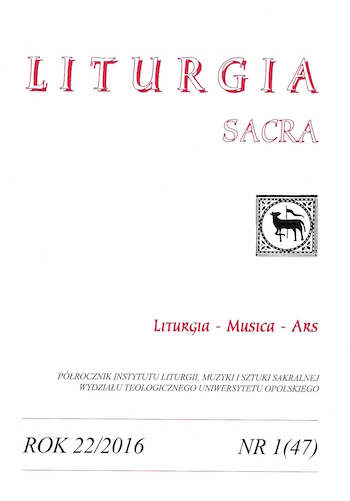Author(s): Piotr Szlufik,Franciszek Koenig,Mateusz Rafał Potoczny,Ryszard Kalamarz,Radosław Błaszczyk,Henryk Nadrowski / Language(s): Polish
Issue: 47/2016
Review of:
Ks. Mateusz Potoczny - KAROL LITAWA, I riti propri del Papa celebrati nella Capella privata durante la Settimana Santa nei secoli XII e XIII, Rzym: Pontificio Istituto Liturgico 2014, 293 s., ISBN 978-83-62934-57-7.
Ks. Mateusz Potoczny - GUIDO FUCHS, Weekend a liturgia. Między kościelną Tradycją a współczesnym przeżywaniem czasu, Kraków: „Homo Dei” 2014, 198 [1] s., ISBN 978-83-64451-14-0.
Ks. Mateusz Potoczny - CZESŁAW KRAKOWIAK, Sakramentalia i błogosławieństwa w liturgii Kościoła (Prace Wydziału Teologii 167), Lublin: TN KUL Jana Pawła II 2015, 194 s., ISBN 978-83-7306-689-2.
Ks. Mateusz Potoczny - MAREK CHMIELEWSKI, JANUSZ KRÓLIKOWSKI, Duchowość uczynków miłosierdzia. Materiały duszpasterskie na Jubileuszowy Rok Miłosierdzia (8 XII 2015–20 XI 2016) (Biblioteka Ostrobramska 5), Ostra Brama, Skarżysko-Kamienna: Sanktuarium Matki Bożej Ostrobramskiej 2015, 193 [3] s., ISBN 978-83-7847-300-8.
Ks. Mateusz Potoczny - KAZIMIERZ MATWIEJUK, Triduum paschalne. Trzy noce Chrystusa zdradzonego i ukrzyżowanego, który zmartwychwstał, Siedlce: „Unitas” 2015, 249 [1] s., ISBN 978-83-61071-91-4.
Ks. Mateusz Potoczny - WALDEMAR JAN PAŁĘCKI MSF, Pytanie o liturgię. Misterium liturgii w życiu Kościoła, przedm. Zbigniew Wit, Lublin: Wydaw. KUL 2015, 208 s., ISBN 978-83- 7702-956-5.
Ks. Mateusz Potoczny - PIOTR ROSZAK, Mozarabowie i ich liturgia. Chrystologia rytu hiszpańsko-mozarabskiego, Toruń: Wydaw. Naukowe UMK 2015, 317 s., ISBN 978-83-231-3342-1.
Ks. Mateusz Potoczny - GRZEGORZ ŚMIECIŃSKI, Liturgia po Soborze Watykańskim II w (archi)diecezji katowickiej, przedm. Andrzej Żądło, Katowice: „Emmanuel” 2015, 326 s., ISBN 978- 83-63757-88-5.
Ks. Piotr Wiśniewski - IRENEUSZ PAWLAK, Laudes et Vesperae Dominicales. Chwalby Poranne (Jutrznia) i Nieszpory na niedziele okresu zwykłego z towarzyszeniem organowym, red. S. Garnczarski, Tarnów: Wydawnictwo Biblos 2015, 124 s., ISBN 978-83-7793-355-8.
Ks. Piotr Wiśniewski - WIESŁAW HUDEK,PIOTR WIŚNIEWSKI, Cantare amantis est. Wieloautorska monografia naukowa z okazji 80. urodzin Ks. Prof. dr. hab. Ireneusza Pawlaka, Lublin: Wydawnictwo „Polihymnia” 2015, 615 s., ISBN 978-83 7847-253-7.
Ks. Piotr Wiśniewski - TADEUSZ BRATKOWSKI, Officium divinum de tempore w rękopiśmiennych antyfonach zakonów benedyktyńskich w Polsce od XV do XIX wieku, Rzeszów: Wydawnictwo Uniwersytetu Rzeszowskiego 2013, 336 s., ISBN 978-83-7338-894-9.
Ks. Piotr Wiśniewski - Kasjodor (Flavius Magnus Aurelius Cassiodorus), Institutiones musicae. Zasady muzyki, Z języka łacińskiego przełożył, wstępem i komentarzem opatrzył oraz słownik sporządził Lucjan Dyka, Rzeszów: Wydawnictwo Uniwersytetu Rzeszowskiego 2015, ss. 209, ISBN 978-83-7996-173-3.
Ks. Franciszek Koenig - MARIA SZYMANOWICZ, Polska bibliografia organów, t. II, Lublin: Wydawnictwo Muzyczne „Polihymnia” 2014, 479 s., ISBN 978-83-7847-241-4.
Ks. Franciszek Koenig - GRZEGORZ POŹNIAK, Katalog organów diecezji opolskiej, cz. II (Z Dziejów Kultury Chrześcijańskiej na Śląsku 86), Opole: Redakcja Wydawnictw Wydziału Teologicznego UO 2015, 264 s., ISBN 978-83-63950-60-6.
Ks. Franciszek Koenig - ANDRZEJ MIKOŁAJ SZADEJKO, Styl i interpretacja w utworach organowych Friedricha Christiana Mohrheima (1719?–1780) i Johanna Gottfrieda Müthela (1728–1788). Zagadnienia wykonawcze i stylistyczne muzyki organowej w regionie południowego Bałtyku w osiemnastym wieku, Gdańsk: Akademia Muzyczna im. Stanisława Moniuszki 2010, 310 s., płyta CD, ISBN 987-83-925967-6-9.
Ks. Franciszek Koenig - GRZEGORZ POŹNIAK, Opolski krajobraz organowy, Opole: Diecezjalny Instytut Muzyki Kościelnej 2015, 95 s., ISBN 978-83-7342-474-6.
Ks. Franciszek Koenig - PIOTR KULITA, Muzyka w sakramentach inicjacji chrześcijańskiej po Soborze Watykańskim II na podstawie obrzędów w języku polskim, Lublin: Wydawnictwo „Polihymnia” 2015, 338 s., ISBN 978-83-7847-254-4.
Ks. Franciszek Koenig - GRZEGORZ POŹNIAK,PIOTR TARLINSKI (red.), Śląskie organy IV. Materiały z konferencji organoznawczej zorganizowanej przez Katedrę Muzyki Kościelnej i Wychowania Muzycznego Wydziału Teologicznego Uniwersytetu Opolskiego oraz Diecezjalny Instytut Muzyki Kościelnej w dniu 18 marca 2015 (Sympozja 87), Opole: Redakcja Wydawnictw Wydziału Teologicznego UO 2015, 317 s., ISBN 978-83- 63950-57-6.
Ks. Piotr Szlufik SDB HIERONIM CHAMSKI,MIROSŁAW WYSZOGRODZKI SDB (opr.), Tobie Panie zaufałem. Akompaniamenty, Płock: Wydawnictwo „Hejnał” 2015, 222 s., ISMN 979-0- 801-501-31-8.
Ks. Piotr Szlufik SDB - MIROSŁAW WYSZOGRODZKI SDB (wybór i opr.), Śpiewy religijne. Towarzyszenia organowe, Płock: Wydawnictwo „Hejnał” 2015, 417 [3] s., ISMN M-979-0-801501-23-3.
More...
